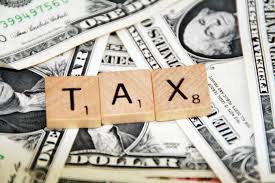Most San Francisco residents don’t realize that different corporations have specific tax issues. For an example, S and C corporations are taxed differently. An S Corporation allows shareholders to flow through income and losses on their personal tax returns and be assessed at individual income tax rates. While C Corporations are taxed through the standard corporate income tax method (which can create a “double tax” of company and personal income tax). 
At first glance, an S corporation may appear to be the better choice for a small business, but what does it take to qualify as a small business? Per the IRS, qualifications for S Corporation status has to meet the following standards;
· Be a domestic corporation
· Have only allowable shareholders
· Have no more than 100 shareholders
· Have only one class of stock
· Not be an ineligible corporation
Business Evolution from One State to Many: Corporate Taxes in San Francisco
Here’s the problem, many domestic Bay Area businesses have business contacts in other states, or even countries. At some point, they may want to bring those contacts into the “fold” of their company. When leaders are ready to do this, from a legal perspective, it may be better to start an LLC or limited liability company. There are two kinds of LLCs; foreign and domestic. These differences refer to states, not countries. LLC’s are not recognized outside the United States.
An LLC is not a corporation, but a hybrid business entity. It is a great way to manage a multi-state tax structure for businesses IF this is the best solution. (Every situation is unique, so pleaes reach out to us for a consultation on business organization options). Before running off to register for an LLC, or any other type of business, owners should first speak to an expert tax consultant. A top CPA firm for corporate taxes in San Francisco like our Safe Harbor team can help evaluate the right choice for individual business needs.
Leaders may also be concerned about the new moving pieces in accounting when changes are made. How does this affect tax preparation? When should W2’s be mailed out? What are the IRS audit challenges? If a company already has a trusted domestic CPA, that person may need support with such multi-state questions too. A CPA skilled in California business taxes could have less experience with multi-state tax liabilities. Safe Harbor accountants are adept at business taxes for both California and multi-state corporations. San Francisco companies looking to establish business beyond the borders of our golden state, can contact Safe Harbor for a consult.

